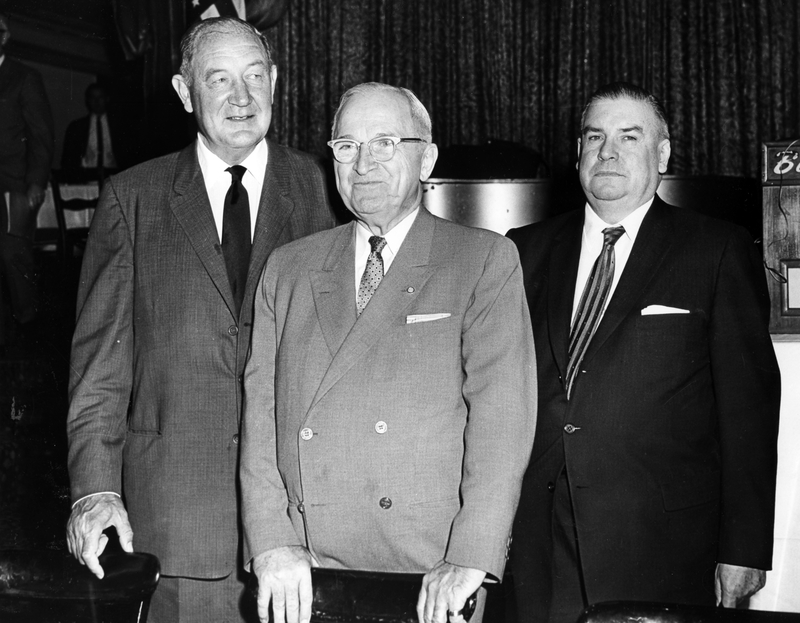Authors:
Historic Era: Era 9: Postwar United States (1945 to early 1970s)
Historic Theme:
Subject:
February/March 2021 | Volume 66, Issue 2


Authors:
Historic Era: Era 9: Postwar United States (1945 to early 1970s)
Historic Theme:
Subject:
February/March 2021 | Volume 66, Issue 2
Harry S. Truman became president of a country much changed from the pre-war America of Franklin D. Roosevelt. Relative prosperity born of war had replaced depression, and government had turned its attention from combatting hardship to underwriting an immense military enterprise. In the aftermath of war, leftover property, ready money, and improvised policies offered opportunity for personal gain at public expense.
Such opportunity had an unfortunate effect on official behavior. Whatever his achievements in other fields, President Truman was unable to enforce high standards of conduct throughout his administration, nor did he invariably select appointees capable of observing high standards. As Truman’s time in office lengthened, their indiscretions came increasingly into public view and provided the opposition with ammunition for its 1952 election-year charge that there was a “mess in Washington.” That there was a mess, to the extent that misconduct extended to several agencies and touched the White House itself, is indisputable; what has remained in dispute is the effectiveness of the president’s responses.

In general, neither contemporary commentators nor historians of the Truman administration have found that the president met such failings with alacrity, or that he met fully his responsibility for setting the administration standards." The only work devoted entirely to the scandals goes even further in suggesting that there was "a general conspiracy to obstruct justice.” However, it does not elaborate on the operation of such a conspiracy, and the possibility of its existence is not supported elsewhere.”
Alonzo L. Hamby, though highly critical of Truman, also makes the reasonable suggestion that the president's attitude changed as his perception broadened. He points to Truman's changed attitude between 1951 and 1952 on the need to force disclosure of government officials' incomes. Hamby credits Truman with making sound institutional reforms, but he condemns him for creating "an impression of White House complacency which obscured the practical constructive steps he was taking."
Indeed, Hamby hints that perhaps Truman, despite his background in machine politics, may have been relatively uneducated in the types of misconduct possible in his postwar government, and that the tardiness of his responses was a product of the slowness of his education.
While this education was taking place, there occurred misconduct on a scale that may not have harmed the functioning of the government in most fields of policy, but certainly shook the confidence of the public in the executive branch and the president himself. The ultimate toll in his official family was heavy: a secretary who went to jail for deeds committed in the White House; two White House aides censured for persistent intervention in matters beyond their legitimate responsibilities; an